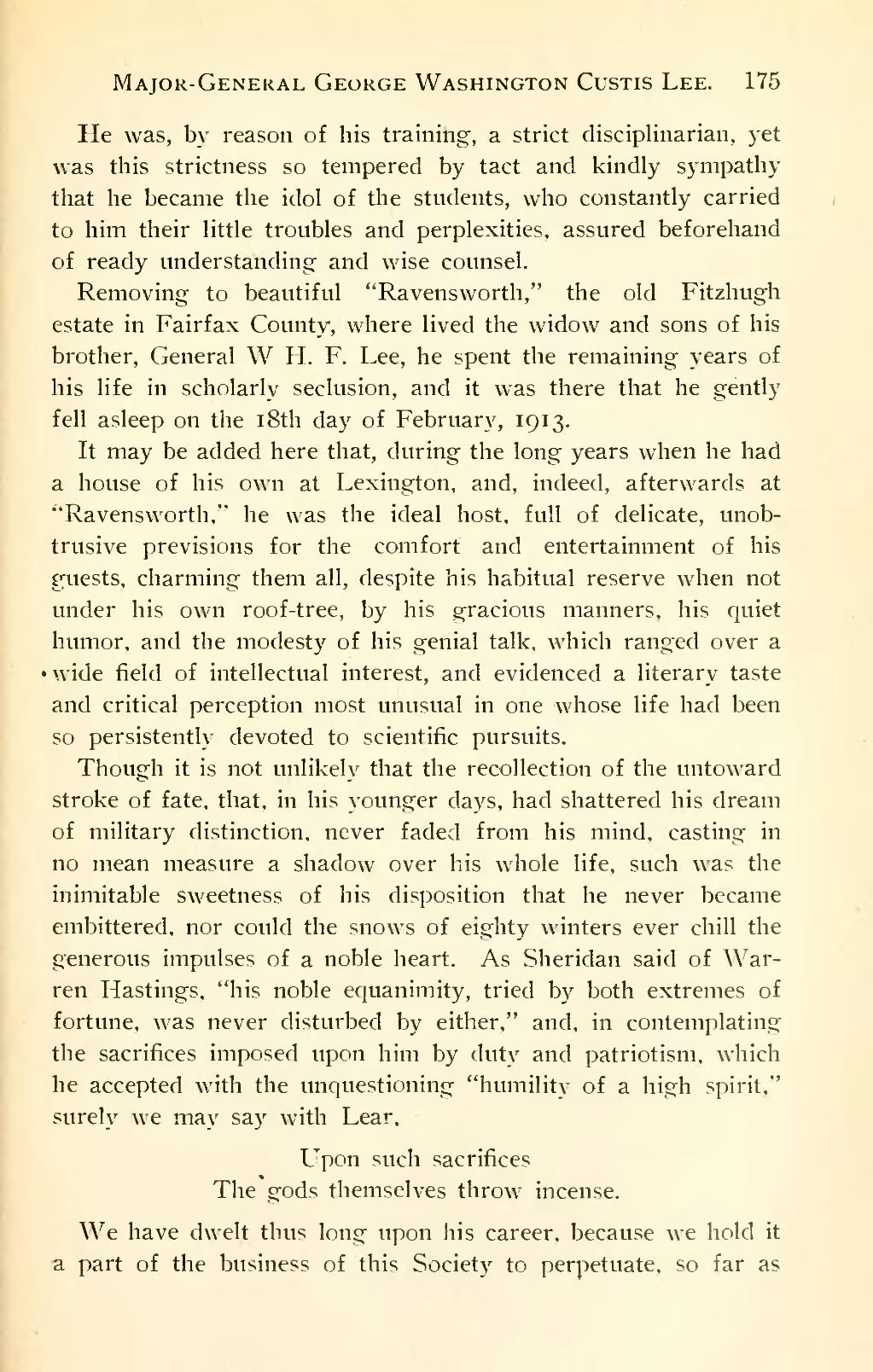Major-General George Washington Custis Lee. 175
He was, by reason of his training, a strict disciplinarian, yet was this strictness so tempered by tact and kindly sympathy that he became the idol of the students, who constantly carried to him their little troubles and perplexities, assured beforehand of ready understanding and wise counsel.
Removing to beautiful "Ravensworth," the old Fitzhugh estate in Fairfax County, where lived the widow and sons of his brother. General W H. F. Lee, he spent the remaining years of his life in scholarly seclusion, and it was there that he gently fell asleep on the i8th day of February, 191 3.
It may be added here that, during the long years when he had a house of his own at Lexington, and, indeed, afterwards at "Ravensworth," he was the ideal host, full of delicate, unob- trusive previsions for the comfort and entertainment of his guests, charming them all, despite his habitual reserve when not under his own roof-tree, by his gracious manners, his quiet humor, and the modesty of his genial talk, which ranged over a •wide field of intellectual interest, and evidenced a literary taste and critical perception most unusual in one whose life had been so persistently devoted to scientific pursuits.
Though it is not unlikely that the recollection of the untoward stroke of fate, that, in his younger days, had shattered his dream of military distinction, never faded from his mind, casting in no mean measure a shadow over his whole life, such was the inimitable sweetness of his disposition that he never became embittered, nor could the snows of eighty winters ever chill the generous impulses of a noble heart. As Sheridan said of War- ren Hastings, "his noble equanimity, tried by both extremes of fortune, was never disturbed by either," and, in contemplating the sacrifices imposed upon him by duty and patriotism, which he accepted with the unquestioning "humility of a high spirit," surely we may say with Lear,
L'^pon such sacrifices The gods themselves throw incense.
We have dwelt thus long upon his career, because we hold it a part of the business of this Society to perpetuate, so far as
